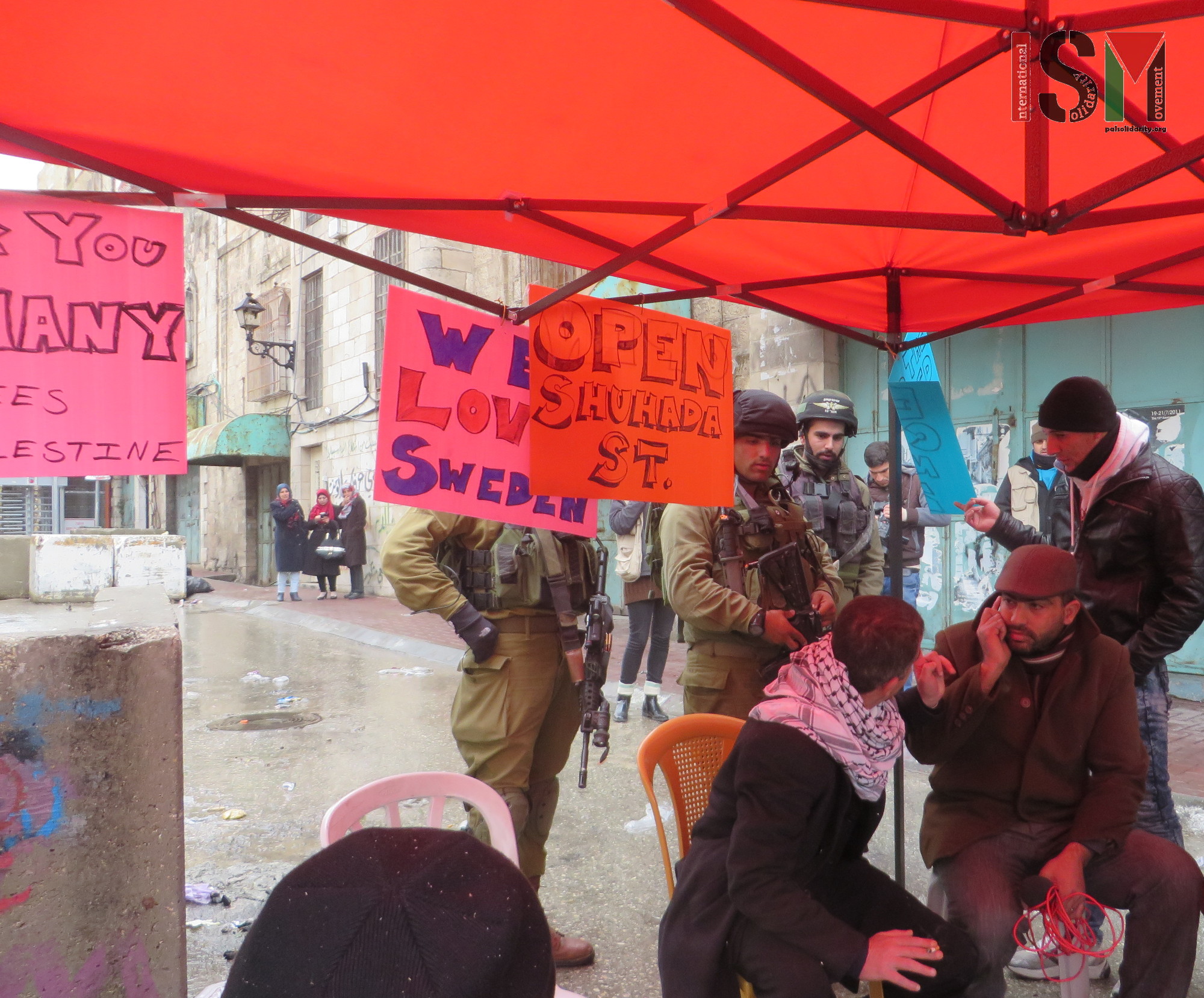Tag: Settlers
-
Children living in closed military zone enjoy day of fun under the shadow of the occupation
13th February 2016 | International Solidarity Movement, al-Khalil team | Hebron, occupied Palestine On February 13th 2016 Youth Against Settlements in occupied al-Khalil (Hebron) organised a children’s activity in front of Shuhada Street checkpoint. Around 50 children from the neighbourhoods located on the H2 (entirely Israeli military-controlled) side of the checkpoint – Tel Rumeida and…
-
Demonstrators protest closed military zone under threat of Israeli violence
8th February 2016 | International Solidarity Movement, al-Khalil team | Hebron, occupied Palestine On 8th February 2016, Israeli forces threatened to attack a peaceful demonstration in front of Shuhada checkpoint in occupied al-Khalil (Hebron). Protesters gathered at noon to protest the continued closure of the Tel Rumeida neighbourhood, that on the 1st of November 2015…
-
100 days of collective punishment for Hebron residents
7th February 2016 | International Solidarity Movement | Hebron, occupied Palestine February 8th marks one hundred days since Israeli forces declared the Tel Rumeida neighborhood and the adjacent portion of Shuhada Street a “closed military zone,” requiring residents to register with the Israeli military and be assigned numbers in order to be allowed to access…



